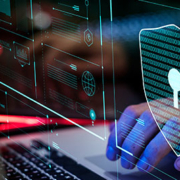4 pro tips from an IT security expert
Cybersecurity should be everyone’s concern, especially considering that cyberattacks are on the rise. But you already know the basics like changing your passwords often and making sure that you don’t download anything from a source you don’t trust. Here are some expert tips that can help you become even more secure.
Start with due diligence
We would be remiss if we didn’t mention these few things that would fall under the category of “simple, but effective,” though you probably already know about them:
- Data backup. This is ground zero to ensure your business isn’t vulnerable to data loss in the case of a breach. With your data regularly backed up, your business has resilience and continuity.
- Automatic updates. Schedule your operating systems, antivirus programs, Wi-Fi connection points, and anything and everything with firmware to check for updates on a regular schedule. This takes care of simple, known security gaps that could form over time.
- Employee education. Making sure the whole team is engaging in good tech hygiene practices is the easiest way to protect your network, as this is the vector through which most attacks happen.
Next-level defense
These three foundational approaches should prevent 90% of your problems, which is why we mentioned them. Now on to the 4 more advanced tips to cover the other 10%.
1. Utilize two-factor authentication
This is another technique that seems too simple to mention, but a lot of people don’t realize just how valuable it is. When available, this option should be active on any account that uses information deemed valuable. Most types of attacks can be neutralized by two-factor authentication simply because it forces an attacker to provide more than the bare minimum of credentials to be able to use anything – that means more passwords to crack, more accounts to be familiar with, more access to physical devices, etc.
Further reading: Two-factor authentication: How and why to use it
2. Use a VPN when working remotely
It’s always best to consider unfamiliar networks as compromised, especially public Wi-Fi networks. It’s common nowadays for travelers to be working from their laptop at the airport or a coffee shop. Just because you’re working remotely doesn’t mean you can let your guard down.
VPNs can help protect your business’s valuable information when remote workers are telecommuting in. The VPN essentially creates an isolated network by encrypting your data between your computer and the VPN server. It is then unencrypted and sent along its way. This is highly effective in stopping man-in-the-middle attacks and other attempts at leaking data via your connection.
Related reading: The best VPN services for 2019
3. Require full disk encryption for laptops
Essentially full disk encryption ensures that the entire disk containing your data, including the OS, is encrypted and can only be unlocked with a password of your choosing. Again, this is really handy for remote workers as they typically work on laptops or mobile devices. If their device is misplaced, the data isn’t compromised because the password is still required to gain access.
4. Segment your network
Network segmentation is the practice of splitting your network into different chunks that keep them away from potential dangers while simultaneously making a breach much more likely to be isolated to a smaller section of your network. That way, risks are minimized by avoiding additional exposure for the highly sensitive data on your network.
Learn more:
The Australian Cyber Security Centre’s paper on implementing network segmentation and segregation
In conclusion
We’ve only just scratched the surface of some intermediate steps you can take towards making your business more secure. Being proactive is the best way to keep yourself and your information safe, so be sure to keep an eye on our resources for more tips. And don’t hesitate to reach out and ask the experts any questions you might have.






